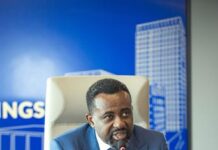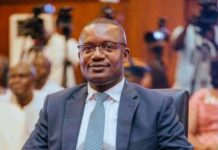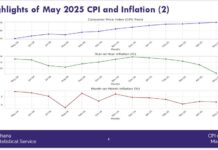FOCAC and Global Competition
As I wrote in the Part 1 of this series, the race for the development of Ghana’s Nuclear power plant invites not just investment but also political gamesmanship from global powers. The Forum on China-Africa Cooperation (FOCAC) strengthens China’s position, solidifying its role in Africa’s energy development.
Evaluating Nuclear Energy Partners
Evaluating potential partners based on reliability, financial flexibility, technical expertise, and political stability is crucial in addressing some of these questions to chart a successful nuclear energy path. Table 1 provides a clear comparison of potential nuclear energy partners based on their strengths and weaknesses in critical areas, supported by landmark projects in Africa.
Table 1. Comparison of Potential Nuclear Energy Partners for Africa
| Criteria | China | Russia | United States |
| Reliability of Delivery | High: Proven track record in Africa (e.g., Ethiopia’s Addis Ababa–Djibouti Railway) |
High:
Successful projects in Egypt (e.g., Dabaa Nuclear Power Plant) |
Medium:
Historical delays (e.g., Millennium Challenge Corporation projects in Africa) |
| Financial Flexibility | High:
FOCAC support, competitive loans (e.g., multiple infrastructure projects funded through FOCAC) |
Medium:
Competitive but geopolitical risks (e.g., Rosatom deals with Egypt, Uganda |
Low: Often bureaucratic and conditional (e.g., USAID funding complexities) |
| Technical Expertise | High:
Advanced technology and expertise (e.g., multiple high-speed rail projects) |
High:
Advanced nuclear technology (e.g., Rosatom’s work in Egypt) |
High:
Leading nuclear technology (e.g., support to South Africa’s nuclear program) |
| Political Stability | High:
Stable relations, significant influence (e.g., deep political and economic ties with several African nations) |
Medium:
Geopolitical tensions (e.g., strained relations due to conflicts) |
Low:
Often fluctuating policies (e.g., changing foreign aid priorities) |
Source: Author’s construction based on textual analysis of governments’ official website, and policy documents
Note:
- Five countries are in the race for the development of Ghana’s Nuclear power plant: China, Russia, US, France, and South Korea.
- France and South Korea are excluded from the table due to lack of information.
- I took an inductive approach to allow the gathered information to guide the emergence of criteria.
- Measurements of high, medium, and low are based on qualitative assessments of each country’s track record, financing terms, technical expertise, and political stability, supported by landmark projects in Africa.
Observations:
- China scores high in reliability, financial flexibility, and local development support, as demonstrated by projects like the Addis Ababa–Djibouti Railway, extensive funding through FOCAC, and skills transfer programs.
- Russia performs well in reliability and technical expertise, supported by the Dabaa Nuclear Power Plant in Egypt, but faces challenges in political stability due to geopolitical tensions.
- United States offers high technical expertise, illustrated by its support to South Africa’s nuclear program, but often struggles with bureaucratic hurdles and fluctuating policies, affecting its financial flexibility and reliability.
FOCAC Connection and China’s Advantage
Western countries, including the United States, face significant challenges in the race for Africa’s nuclear energy market. Historically, their engagements with Africa have often been hampered by bureaucratic inefficiencies, a patronizing attitude, and frequent delays in project delivery. These issues have eroded trust and created an opportunity for other nations to step in.
Additionally, Russia, despite its strong presence in Africa’s nuclear sector, faces its own set of challenges. Geopolitical conflicts have stretched Russia’s resources thin, and Western sanctions have aimed to isolate it from global nuclear energy supply chains, limiting its ability to compete effectively.
In this landscape, China emerges as a formidable player, leveraging the Forum on China-Africa Cooperation (FOCAC) to solidify its role in Africa’s energy development. FOCAC, established to enhance collaboration between China and African nations, has become a pivotal platform for discussing and financing major infrastructure projects, including nuclear energy. China’s advantage in this sector is underpinned by several key factors.
Extensive investments in African infrastructure give China a strategic edge:
Over the years, China has committed billions of dollars to build roads, railways, ports, and power plants across the continent. These infrastructures not only facilitates economic growth but also provides a solid foundation for future nuclear projects. In Ghana, for instance, Chinese firms already involved in infrastructure development are well-positioned to extend their expertise to the nuclear energy sector.
Efficiency and Reliability:
Unlike Western countries, which are often perceived as slow and cumbersome, China is known for its swift execution of projects. This reliability makes China an attractive partner for African nations eager to overcome their energy deficits quickly. The ability to deliver on promises without lengthy delays enhances China’s reputation and fosters deeper trust with its African counterparts.
Flexible Financing:
Through FOCAC, China has developed innovative financing models that cater to the specific needs of African countries. These models often include favorable loan terms, grants, and technical assistance, making nuclear energy projects more accessible and affordable for nations like Ghana. This financial flexibility is crucial in a region where securing funding for large-scale projects can be challenging.
China’s strategic investments, efficient project delivery, and flexible financing have positioned it as a preferred partner for Africa’s nuclear energy aspirations.
It is imperative to state that the FOCAC framework amplifies these advantages, providing a robust platform for sustained collaboration and development. As Ghana and other African nations navigate their nuclear ambitions, China’s profound role in shaping the continent’s energy future becomes increasingly evident.
Conclusion
Africa’s nuclear race is not just a quest for energy but a defining moment in the continent’s development narrative. Ghana’s bold move towards establishing its first nuclear power plant exemplifies the urgency and ambition driving this transformation. As African nations explore their nuclear options, they stand at a crossroads, where the choice of partners could shape their energy future for decades to come. “He who does not look ahead remains behind,” says an African proverb, and this wisdom resonates deeply as countries like Ghana navigate the complex interplay of global powers.
China’s strategic investments and rapid delivery, Russia’s deep-rooted energy expertise, and the potential resurgence of Western engagement all present unique opportunities and challenges. The stakes are high, but the rewards of energy security and economic growth are within reach. By asking the right questions and making informed choices, African nations can harness the power of nuclear energy to illuminate their path forward. The decisions made today will not only keep the lights on but also empower future generations to thrive in a brighter, more sustainable Africa.
Dr. Ankrah is Senior Research Fellow, Africa-China Centre for Policy and Advisory and Lecturer, Ghana Communication Technology University.










